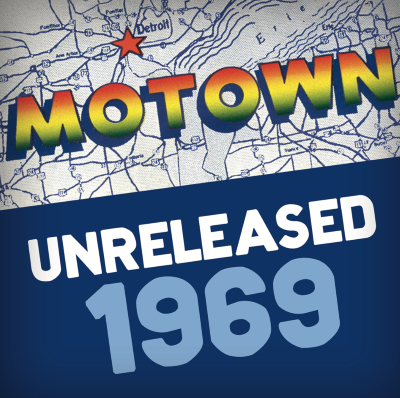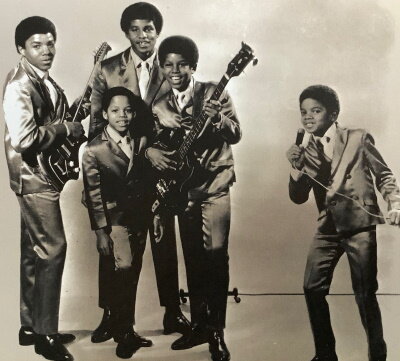Motown ’69: Yesterday’s Dreams
LATEST ‘UNRELEASED’ BUNDLE TAKES CARE OF BUSINESS
In 1972, Motown Records switched the affiliation of its Jobete Music publishing wing from one American performing rights organisation, BMI, to another, ASCAP. For we civilians, the move was interesting because of the related trade-press advertising, which identified most of Jobete’s songwriters – a list seldom (if ever) seen in public.
Many of the names were familiar, a few were not. Several showed real identities, such as Robert Kreinar, better known as Motown house musician Bob Babbitt. Naturally, there was an abundance of Gordys, some unabbreviated given names (Alfred Cleveland and Clarence McMurray, for example), and even a typo (Elgie Stovie, which should have been Stover).
The work of those and other music makers – some of whom could be called Motown’s second generation – is showcased in the latest Motown Unreleased digital package, issued this September. Covering the year 1969, its bumper 60 tracks include recordings by most of Motown’s biggest stars, as well as by various second- and third-division acts. Not to mention the magic of bassist Robert Kreinar – sorry, Bob Babbitt – and his fellow brothers in funk, including bandleader Earl Van Dyke and arranger par excellence, Paul Riser.
If you’ve already listened to Motown Unreleased 1969, you’ll have your own favourites. Mine include Stevie Wonder’s boisterous “Can’t Do Without Your Love,” exuding all the impatience of his musical transition from teenager to adult, and the Temptations’ “Pretty Little Brown Skin Girl,” with its old-school vocal blend. The latter was produced by onetime doowop singer (and ubiquitous bass voice-for-hire) Arthur Crier, and is all the more intriguing because it was cut in early ’69 as Norman Whitfield was injecting further psychedelic soul into the veins of the Tempts.
Among other highlights are Bobby Taylor’s emotional “Touched By Love” – he really was an underrated singer – and Valerie Simpson’s melody-blessed “You Ain’t Livin’ Till You’re Lovin’.” This may have been her first solo recording for Motown, according to one of the MU 1969 compilation producers, Harry Weinger, although she sounds rather more vocally tentative than expected.
Then there are the backstories. The above-cited Wonder track was written by William Weatherspoon and James Dean – known well to dedicated Hitsville followers – with Seajoseffer Spencer. Who? Well, he was “Joe” Spencer, a familiar figure in Detroit broadcasting circles as programme director of WGPR-TV during the 1970s, and earlier at WWJ, America’s first commercial radio station. “Can’t Do Without Your Love” was originally assigned to the Marvelettes, then Dennis Edwards was overdubbed onto the track in 1967. Stevie subsequently recut everything, with Weatherspoon and Dean producing.
RINGING THAT BELL
Another MU 1969 tunesmith is Delores Wilkinson, who co-wrote Marvin Gaye’s propulsive “I’ll Take Care Of Business.” She toiled as one of Jobete’s part-time lyricists, whose daytime job was as a supervisor at Michigan Bell, the telephone firm. Her other writing credits include Gaye’s “Sad Tomorrows” and the Jackson 5’s “We’ve Got Blue Skies.”
One of Wilkinson’s collaborators on “I’ll Take Care Of Business” had a colourful history of his own. The late Allen “Bo” Story (real name: Shadee Hasan) recorded for the Anna and Check Mate labels in the early ’60s, composed material for Jobete later in the decade, and in 1979 made a Motown album, I Just Need More Money, produced by Anna Gordy Gaye. Two further Story co-writes appear on MU 1969, Edwin Starr’s “Born Just To Be That Way” and Smokey Robinson & the Miracles’ “What About Me.”
Ivy Jo Hunter, between Levi and Stevie
An even greater presence on this new digital set – as writer, producer and singer – is Ivy Jo Hunter. There are his own ’69 recordings of songs made famous by others, such “Ask The Lonely” and “Yesterday’s Dreams.” Hunter’s voice is no match for the majesty and melancholy of Levi Stubbs – whose is? – but the fact that he was those hits’ co-author adds interest.
Even more engaging is “Dancing In The Street,” which Hunter wrote with Mickey Stevenson and Marvin Gaye five years earlier. The backing track for this version was recorded in September 1969; he added his vocals the following year. “He told me that it’s more like how he wanted the song to sound,” says Harry Weinger.
In a 2013 Soul Source interview, Hunter offered similar comments to Rob Moss. “I’d got the melody in my head, but hated it. We were in Mickey’s apartment with Marvin when I first tried it out on them. Marvin said that it should be faster and would cause ‘dancing in the street,’ so that gave us the title. Mickey added all those place names and the following day, we recorded it on Martha & the Vandellas. Mickey did actually offer it to Kim Weston, but she turned it down. She said it was too childish.”
One more of Hunter’s MU 1969 productions is “All I Could Do Was Cry” by Yvonne Fair, who creates an appropriate bluesy mood, albeit accompanied by an over-enthusiastic pianist. The song, of course, was Etta James’ first pop-chart hit, composed by Berry Gordy, Billy Davis and Gwen Gordy.
MU 1969 contains some of the Jackson 5’s initial Motown recordings, made after signing with the firm that March. The producer was Bobby Taylor, whose foresight brought them to Detroit – literally, in his car – nine months earlier from Gary, Indiana. Those Hitsville sessions during the summer of ’69 yielded more than a half-dozen Jobete remakes, including “Standing In The Shadows Of Love,” “Who’s Lovin’ You,” “(I Know) I’m Losing You” and “Chained,” which were all part of the group’s debut album.
TAYLOR MADE SOUL
Here, the Jacksons’ previously-unheard track is “What’s So Good About Good Bye,” while they’re also featured singing background for Taylor’s own take on “You’ve Really Got A Hold On Me.” A couple of months earlier, he recorded “At Last (I Found A Love)” and “Love Is Here And Now You’re Gone,” and those tracks are here, too.
Considering that Rare Earth Records made its debut in 1969, there’s relatively little from that label’s artists: one track by the band of the same name, another by the Rustix (written and produced by R. Dean Taylor) and a couple by Michael “Mickey” Denton. According to the liner notes of The Complete Motown Singles Vol. 10: 1970, journeyman Denton recorded more than an album’s worth of material at Hitsville, but only secured one single release.
The Jackson 5: hello, Hitsville
Denton’s mentor was Harry Balk, the storied Detroit music manager/producer (Little Willie John, Del Shannon, Johnny & the Hurricanes) who joined Motown at the end of the ’60s to help run Rare Earth. Thus, some of his other clients – Barney “Duke” Browner, the Volumes, the Lollipops – have material on MU 1969. During my research for Motown: The Sound Of Young America, I called Balk to ask about his time at the company. He declined with thanks, citing his own forthcoming autobiography. Regrettably, that was never published; Balk died in 2016.
As with the series’ previous volumes, MU 1969 producers Weinger, Andrew Flory and Stu Hackel (with research help from Keith Hughes of Don’t Forget The Motor City renown) can be proud of this latest edition. “Motown is clearly evolving at this time,” Weinger said when the set came out. “There’s an opening for writers and producers to experiment with the Motown sound but, for certain topics, or musical ideas, or even artists, the company isn’t ready. Or, it’s a simple case of having only so many slots for releases. So, until now, those songs went unreleased.”
To close, let’s look at one of Jobete’s most lucrative copyrights, “For Once In My Life,” offered on this occasion by Diana Ross & the Supremes. Universal Music’s Andy Skurow recalls being stunned when he and fellow archaeologist George Solomon found the track in 2013, while hunting for material for the Supremes’ “expanded edition” series of compact disc albums. “Not only was it the perfect song, arrangement and Diana Ross vocal,” Skurow says, “but it included Mary and Cindy! Cindy can even be heard in the chatter at the song’s intro.” Producer Hank Cosby cut the track on January 21, 1969 in Studio A, adding the strings three days later at the former Golden World studio. Exactly when the Supremes recorded their vocals is unknown, however.
“At this point, Motown was focused on building and launching Diana as a solo act,” Skurow states, “and many of those latter studio tracks all contain the Andantes. So to discover a Mary and Cindy tape this late is pretty rare. Live recordings and G.I.T. On Broadway sessions apart, we believe this is one of the last studio sessions – if not the last – featuring Diana, Mary and Cindy.”
The final year of the ’60s, new recruits, Los Angeles on the horizon. Motown was in transition, for sure – and what lies ahead, previously unreleased?
Music notes: with 60 tracks by 30 acts, MU 1969 is probably the most eclectic package yet in this series. Tracks by Jr. Walker & the All Stars and Smokey Robinson & the Miracles – three apiece, no less – jostle alongside oddities by Chris Clark (singing unadorned Tom Paxton and hinting at her earliest days in music) and Frank Wilson, in demo mode. The latter’s “Look Out Your Window” and Gladys Knight & the Pips’ “I Had A Dream (Opus 1)” indicate Motown’s increasing openness to social commentary in song. There’s even a Brit on tap: Kiki Dee, with two sides from her late ’69 sojourn to Detroit. And for those irritated by the lack of track and session data on digital music platforms, check out this thorough chronology, published when the unreleased finally became released.


